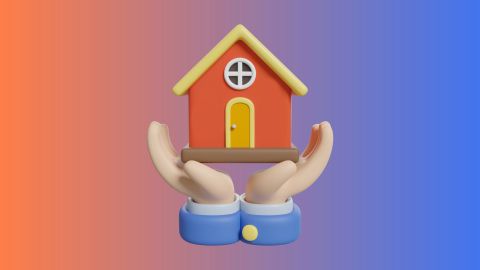Converting metres to inches is often required for everyday tasks, but searching for the right formula or tool can be time-consuming. To make this easier, a free online metre to inch calculator offers quick and accurate results in just a few seconds. The tool is simple to use and eliminates the need for manual calculations.
Whether you are working on a home improvement project, checking fabric measurements, or understanding international dimensions, a metre to inch converter helps you get precise values instantly. With a reliable online calculator, you can convert measurements effortlessly and ensure accuracy every time.
What is an inch?
An inch is a unit of length in both the imperial and US customary systems. It is equal to 1/12 of a foot or approximately 2.54 centimetres. Inches are commonly used to measure shorter lengths, such as the dimensions of objects or the height of a person.
12 inches = 1 foot (12” = 1 ft)
36 inches = 1 yard (36” = 1 yd)
63,360 inches = 1 mile (63,360” = 1 mi)
While you measure in metres and inches, why not measure your financial potential too? A loan against property allows you to tap into your property’s value without selling it. Whether it’s funding a renovation, expanding a business, or consolidating debts, your property can be the key to turning plans into reality. By using your property as collateral, you can unlock access to large funds of up to Rs. 10.50 crore—it is a smart way to manage your finances with ease! Get funds within 72 hours* of approval.
Inch to other conversion units
Inch-based conversions are commonly used in construction, design, manufacturing, and daily measurements. Converting inches into other units helps ensure accuracy and easy comparison across measurement systems.
Units |
Conversion Units |
1 Inch to Mm |
25.4 Mm |
1 Inch to Cm |
2.54 Cm |
1 Inch to Meter |
0.0254 M |
1 Inch to Yard |
0.028 Yard |
1 Inch to Square Cm |
6.45 Sq. Cm |
What is a meter?
A meter is the base unit of length in the International System of Units (SI). It is approximately equal to 39.37 inches or 100 centimetres. The meter is widely used in most countries for scientific, engineering, and everyday measurements. It offers greater precision for larger distances compared to the inch, and it is the standard measurement used globally.
Just like converting metres to inches simplifies tasks, a loan against property simplifies your financial journey. Use your property’s equity to secure funds for big goals—be it higher education, dream vacations, or business investments. Keep your property, gain the funds you need, and move closer to your aspirations. Get a loan against property with competitive interest rates and meet your immediate expenses without hassle.
Meter to other conversion units
Meter-based conversions are widely used in construction, engineering, education, and scientific calculations. Converting meters into other units helps standardise measurements and improves accuracy across different applications.
Units |
Conversion units |
1 Meter to Centimeters |
100 CM |
1 Meter to Inch |
39.3701 Inch |
1 Meter to Foot |
3.28084 Ft |
1 Meter to Yard |
1.09361 Yard |
1 Meter to Meter |
0.01 M |
1 Meter to Kilometer |
0.0001 Kilometer |
1 Meter to Acre |
0.000247105 Acre |
1 Meter to Hectare |
0.0001 Hectare |
1 Meter to Millimeter |
1,000 Millimeter |
Popular conversions
Understanding common metre to inch conversions is crucial for various applications. One metre is equivalent to approximately 39.37 inches. Keeping this conversion factor in mind can simplify tasks that involve both metric and imperial units. Here are some popular conversions:
- 1 metre equals 39.37 inches
- 1 foot is approximately 0.3048 metres
- 1 metre is roughly 3.2808 feet
These conversions serve as building blocks for more complex measurements involving metres and inches.
While you measure distances in metres and inches, measure your possibilities with a loan against property. Leverage the value of your real estate to secure a financial cushion for education, medical needs, or business growth. Retain ownership and enjoy flexible repayment options. With a Bajaj Finserv Loan Against Property, you can unlock high-value funding at competitive interest rates. Whether it is for medical emergencies, business growth, or personal goals, your property empowers you to access the resources you need with ease. Don’t wait—Get our loan against property of up to Rs. 10.50 crore and turn your asset into a solution!
For example:
Convert 6 meters into inches
6 × 39.36 = 236.16 inches
Convert 9.2 meters into inches
9.2 × 39.36 = 362.11 inches
Convert 45 meters into inches
45 × 39.36 = 1,771.20 inches
These examples show how multiplying the meter value by 39.36 gives the equivalent measurement in inches.
Meter |
Inch |
0.01 Meter to Inch |
0.39 Inch |
0.1 Meter to Inch |
3.94 Inch |
1 Meter to Inch |
39.37 Inch |
2 Meter to Inch |
78.74 Inch |
3 Meter to Inch |
118.11 Inch |
4 Meter to Inch |
157.48 Inch |
5 Meter to Inch |
196.85 Inch |
6 Meter to Inch |
236.221 Inch |
7 Meter to Inch |
275.591 Inch |
8 Meter to Inch |
314.961 Inch |
9 Meter to Inch |
354.331 Inch |
10 Meter to Inch |
393.701 Inch |
11 Meter to Inch |
433.071 Inch |
12 Meter to Inch |
472.441 Inch |
13 Meter to Inch |
511.811 Inch |
14 Meter to Inch |
551.181 Inch |
15 Meter to Inch |
590.551 Inch |
16 Meter to Inch |
629.922 Inch |
17 Meter to Inch |
669.292 Inch |
18 Meter to Inch |
708.662 Inch |
19 Meter to Inch |
748.032 Inch |
20 Meter to Inch |
787.402 Inch |
Meter to Inches Conversion Table
Meter to Inches Conversion Table |
|
Meters (m) |
Inches (") |
0.01 Meter to Inch |
0.39 |
0.1 Meter to Inch |
3.94 |
1 Meter to Inch |
39.37 |
2 Meters to Inches |
78.74 |
3 Meters to Inches |
118.11 |
4 Meters to Inches |
157.48 |
5 Meters to Inches |
196.85 |
6 Meters to Inches |
236.22 |
How to use the metre to inch calculator
Online metre-to-inch calculators simplify conversions, making the process quick and precise. Follow these simple steps to ensure accurate results:
- Locate a reliable calculator:
Search for a trusted online metre-to-inch conversion calculator or use a reliable app. - Input the value:
Enter the measurement in metres into the designated field. For instance, type "2.5" for 2.5 metres. - Select the conversion option:
Ensure the calculator is set to convert from metres to inches. Most tools have predefined units for ease of use. - View the result:
Click "Convert" or the equivalent button. The calculator will display the value in inches, such as "98.425 inches." - Repeat for multiple conversions:
If needed, clear the field and repeat the process for additional measurements.
What is meant by metre to inch
Aspect |
Meter |
Inch |
1. Measurement System |
The meter is a unit of length in the International System of Units (SI), which is the standard metric system used worldwide. |
The inch is used in the imperial and U.S. customary systems, mainly in the United States and a few other countries. |
2. Size and Conversion |
One meter is approximately 39.37 inches. It is a larger unit, suitable for expressing longer distances. |
One inch is equal to 25.4 millimeters or approximately 0.0254 meters. It is a smaller unit for precise measurements in fields like construction. |
3. Standardisation |
Defined based on the speed of light in a vacuum, making it a stable and universal reference. |
Historically varied, but now defined exactly as 25.4 millimeters. |
4. Subdivisions & Multiples |
Uses powers of 10 for easy conversion. Submultiples: millimeters, centimeters. Multiples: kilometers. |
1 foot = 12 inches. Common subdivisions include ½, ¼, and ⅛ inch, aiding in fractional measurements. |
5. Global Usage |
Globally adopted as the standard unit of length, especially in science, engineering, and international trade. |
Primarily used in the U.S. and a few other countries. Common in construction, manufacturing, and daily use. |
6. Precision |
Suitable for expressing longer distances concisely, useful for precision in large-scale applications. |
Allows for detailed, fine measurements; ideal in applications requiring high precision. |
Understanding the differences between the metres and inches is essential, especially when working with measurements in different systems or when collaborating internationally. Both units have their unique advantages and are valuable in various fields depending on the context and regional measurement standards.
Some popular area conversion units
Measuring in metres or inches? Extend that precision to your finances with a loan against property. Use your property’s equity to unlock funds for significant needs while keeping ownership intact. It is the perfect balance of financial flexibility and security, designed to help you meet your goals without compromises. Let your property’s value work as hard as you do! Enjoy lower EMIs starting from Rs. 750/lakh* and longer repayment tenures.




